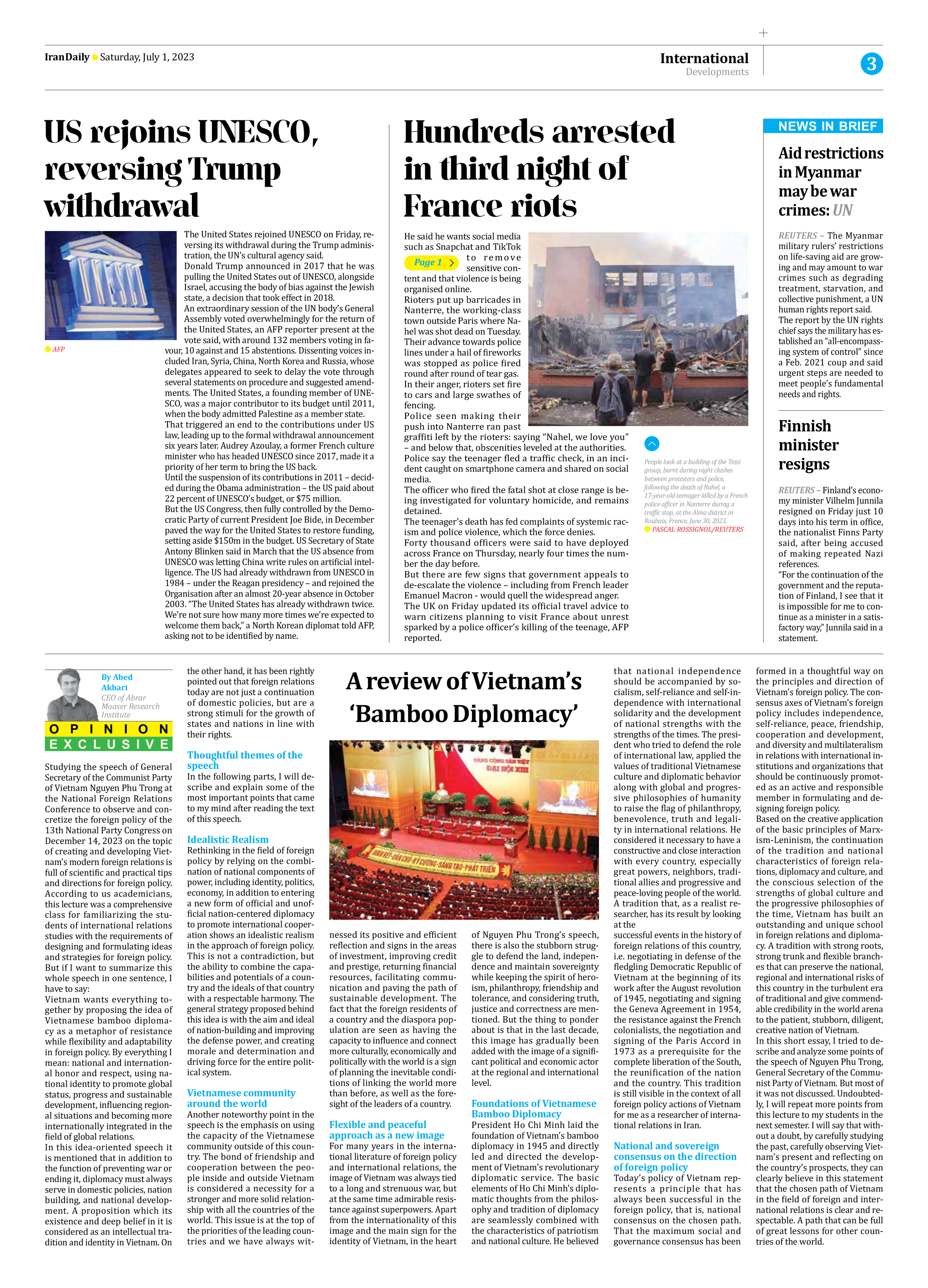
US rejoins UNESCO, reversing Trump withdrawal
The United States rejoined UNESCO on Friday, reversing its withdrawal during the Trump administration, the UN’s cultural agency said.
Donald Trump announced in 2017 that he was pulling the United States out of UNESCO, alongside Israel, accusing the body of bias against the Jewish state, a decision that took effect in 2018.
An extraordinary session of the UN body’s General Assembly voted overwhelmingly for the return of the United States, an AFP reporter present at the vote said, with around 132 members voting in favour, 10 against and 15 abstentions. Dissenting voices included Iran, Syria, China, North Korea and Russia, whose delegates appeared to seek to delay the vote through several statements on procedure and suggested amendments. The United States, a founding member of UNESCO, was a major contributor to its budget until 2011, when the body admitted Palestine as a member state.
That triggered an end to the contributions under US law, leading up to the formal withdrawal announcement six years later. Audrey Azoulay, a former French culture minister who has headed UNESCO since 2017, made it a priority of her term to bring the US back.
Until the suspension of its contributions in 2011 – decided during the Obama administration – the US paid about 22 percent of UNESCO’s budget, or $75 million.
But the US Congress, then fully controlled by the Democratic Party of current President Joe Bide, in December paved the way for the United States to restore funding, setting aside $150m in the budget. US Secretary of State Antony Blinken said in March that the US absence from UNESCO was letting China write rules on artificial intelligence. The US had already withdrawn from UNESCO in 1984 – under the Reagan presidency – and rejoined the Organisation after an almost 20-year absence in October 2003. “The United States has already withdrawn twice. We’re not sure how many more times we’re expected to welcome them back,” a North Korean diplomat told AFP, asking not to be identified by name.







